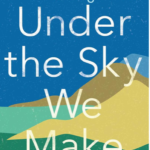Recycling Made Easy
by Laura Beck, on behalf of the Environmental Justice Team
Confused about what you can recycle? What goes in the city bin? What has to go somewhere else? Here’s my summary of recycling in Framingham, including some helpful links.
What you CAN put in your curbside bin: Aluminum & Steel Cans (Empty & Rinse), Glass Bottles and Jars (Empty & Rinse), Plastic Kitchen, Laundry, Bath Bottles and Containers (Empty, Replace Cap—see below for details), Mixed Paper, Newspaper, Magazines, and Flattened Cardboard (Note: Nothing less than 2” square. NO shredded paper.). Do NOT put soft plastic bags & overwrap in the bin, but save them. See below on how to recycle them at the store. Do NOT bag your recyclables. Do NOT include liquids, textiles, or “tanglers”. (Here’s the city’s full guide: https://www.framinghamma.gov/201/Curbside-Recycling)
PLASTIC CONTAINERS. I have been confused so many times! First, we used the #, then they said use the shape. Now they’ve made it easier! Click here for an extremely helpful, printable chart.
My Summary of what you CAN put in your curbside bin: #1 PETE (Single-use food grade items, including water & soda bottles. For one-time use ONLY.), #2 HDPE (Food grade items, including milk jugs, shampoo bottles, & detergent bottles.), #5 PP (Food safe plastics, commonly used for ketchup bottles & yogurt tubs.)
You can NOT recycle #3 PVC (Hard plastics such as pipes, mailboxes, medical supplies, & vinyl house siding).
Recyclable plastics but NOT in your curbside bin:
For #6 PS (Styrofoam packing material) Sustainable Sudbury collects CLEAN WHITE SOLID packing Styrofoam in April and October ($5/large bag, free with $25 yearly membership) NO food trays, egg cartons, cups, peanuts, thin sheets. (Note: I have a membership, so I would be willing to take yours in April. Email me: ljbmusicteacher@gmail.com)
For #7 Other (Hard and durable plastics. Bulky items, such as furniture, large toys, and coolers.), you can drop them off at the recycling center. This does NOT include food nor bath containers with #7.
For #4 LDPE (Film plastics. Such as plastic shopping bags, bread bags, and produce bags), you can drop these off at many supermarkets (click here). Figuring out what is acceptable is a little tricky. Click here for a link with a list (with pictures—very helpful).
Basically, you CAN recycle: Pallet Wrap and Stretch Film, Grocery Bags, Bread Bags, Case Overwrap, Dry Cleaning Bags, Newspaper Sleeves, Resealable Food Storage Bags, Produce Bags, Bubble Wrap, Product Wrap, Retail Bags, Air Pillows, Plastic Shipping Envelopes and Bubble Mailers, Ice Bags, Wood Pellet Bags, Salt Bags, and Cereal Box Liners. It says: Does the package stretch when you pull it? If yes, then recycle it. If it crinkles or tears like paper, then don’t.
But then they elaborate on what NOT to bring in: bags, film, or wrap labeled with #1, #3, #5, #6 or #7, degradable/compostable bags or film packaging, pre-washed salad mixed bags, pet food bags, hot dog or meat wrap packaging, six-pack rings, PPE— gloves, mask, or protective wear—, lamination Film, silage and hay bags, backyard ice rinks, vinyl shower curtains or tablecloths, bedding or linen packaging.
That is a lot to take in, but it gets easier once you start doing it. Here is an informative video. It is an hour long, showing what you can recycle and what they do with it.
Save the Date – Environmental Justice Winter Book Reading Event
Sometime in late January (date to be determined), the Environmental Justice Team will host a book reading. We will be reading Under the Sky We Make by Kimberly Nicholas, PhD. A Los Angeles Times best seller, and everyone is encouraged to join us.
The Amazon summary states:
“After speaking to the international public for close to fifteen years about sustainability, climate scientist Dr. Nicholas  realized that concerned people were getting the wrong message about the climate crisis. Yes, companies and governments are hugely responsible for the mess we’re in. But individuals CAN affect real, significant, and lasting change to solve this problem. Nicholas explores finding purpose in a warming world, combining her scientific expertise and her lived, personal experience in a way that seems fresh and deeply urgent: Agonizing over the climate costs of visiting loved ones overseas, how to find low-carbon love on Tinder, and even exploring her complicated family legacy involving supermarket turkeys.
realized that concerned people were getting the wrong message about the climate crisis. Yes, companies and governments are hugely responsible for the mess we’re in. But individuals CAN affect real, significant, and lasting change to solve this problem. Nicholas explores finding purpose in a warming world, combining her scientific expertise and her lived, personal experience in a way that seems fresh and deeply urgent: Agonizing over the climate costs of visiting loved ones overseas, how to find low-carbon love on Tinder, and even exploring her complicated family legacy involving supermarket turkeys.
In her astonishing, bestselling book Under the Sky We Make, Nicholas does for climate science what Michael Pollan did more than a decade ago for the food on our plate: offering a hopeful, clear-eyed, and somehow also hilarious guide to effecting real change, starting in our own lives. Saving ourselves from climate apocalypse will require radical shifts within each of us, to effect real change in our society and culture. But it can be done. It requires, Dr. Nicholas argues, belief in our own agency and value, alongside a deep understanding that no one will ever hand us power—we’re going to have to seize it for ourselves.”